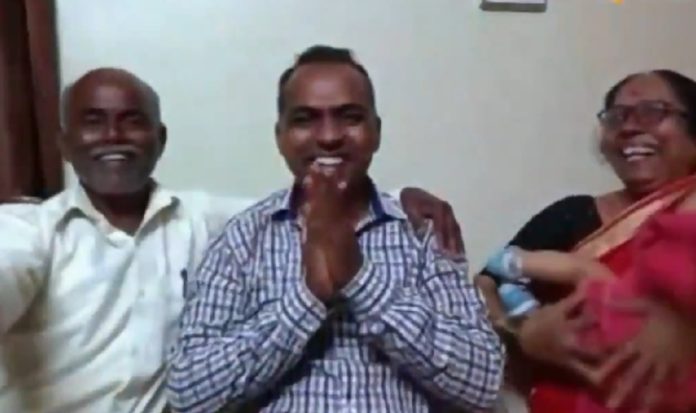New Delhi (NVI): A primary school teacher, Ranjitsinh Disale, from Maharashtra has won USD 1 million annual Global Teacher Prize 2020 for his efforts to promote girls education in India.
He was also awarded in recognition of his efforts of initiating a quick-response (QR) coded textbook revolution in India.
The 32-year-old teacher from Paritewadi village, in Maharashtra’s Solapur district emerged as the winner from 10 finalists from over 12,000 selections from across the world for the annual prize.
Notably, the award was established by the Varkey Foundation and is given in partnership with the United Nations Educational, Scientific and Cultural Organisation (UNESCO).
Ranjitsinh Disale was announced the winner of the Global Teacher Prize 2020 at a virtual ceremony aired from the Natural History Museum in London.
Wow! Here’s THE MOMENT Stephen Fry announced Ranjitsinh Disale as the Winner of The Global Teacher Prize 2020! Congratulations Ranjit! Watch here: https://t.co/9t5GXaIJ58 @ranjitdisale @stephenfry #GTP2020 #TeachersMatter #globalteacherprize #India @NHM_London @UNESCO pic.twitter.com/eQjSosGQwY
— Global Teacher Prize (@TeacherPrize) December 3, 2020
After winning the prize, Disale immediately announced that he would share half the USD 1 million prize money with the nine other finalists.
Disale joined the Zilla Parishad Primary School at Paritewadi in Solapur in 2009. At the time, the school was in a rundown building and attendance was low and teenage girl marriages were common, according to the reports.
He then ensured to provide the textbooks available in the local language for the students and also embedded the textbooks with unique QR codes to give students access to audio poems, stories, assignments and video lectures.
The impact of his interventions has been that there are now no reported teenage marriages in the village and 100 per cent attendance of girls at the school.
In addition to this, Disale’s school went on to become the first in the state of Maharashtra to introduce QR codes and after submitting a proposal and successful pilot scheme, the state ministry announced in 2017 that they would introduce QR coded textbooks across the state for all grades.
-RJV








